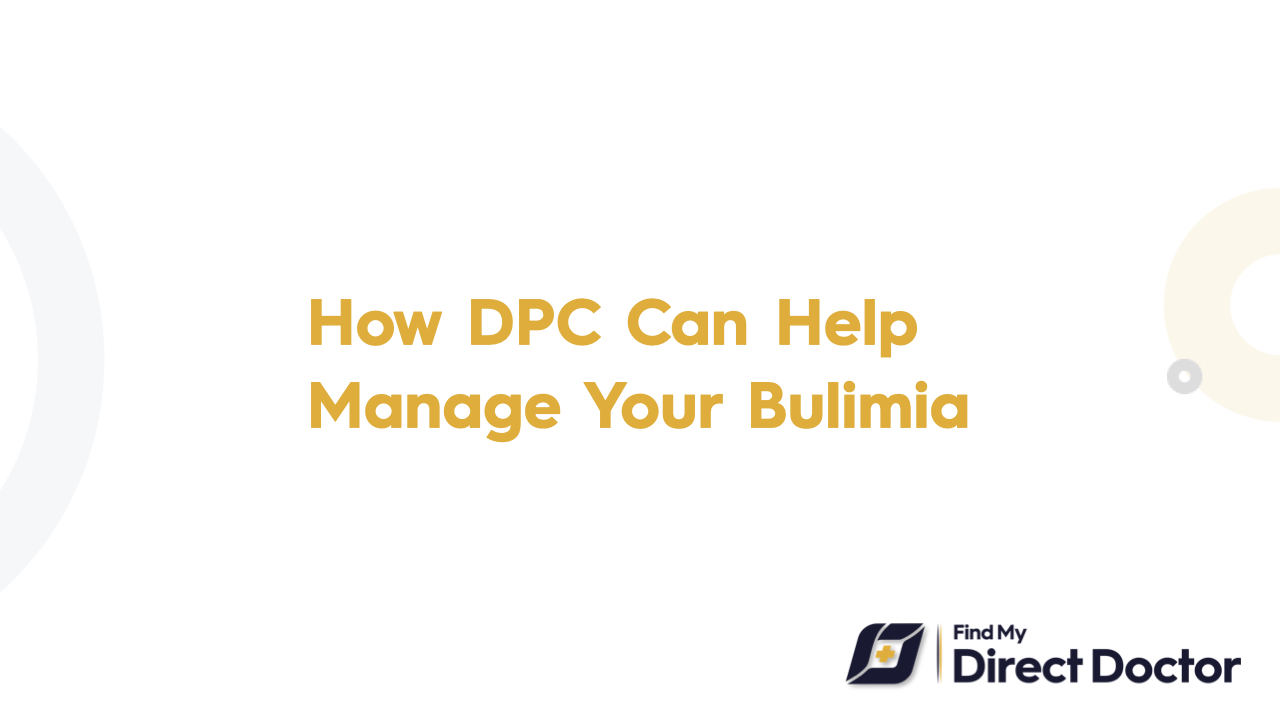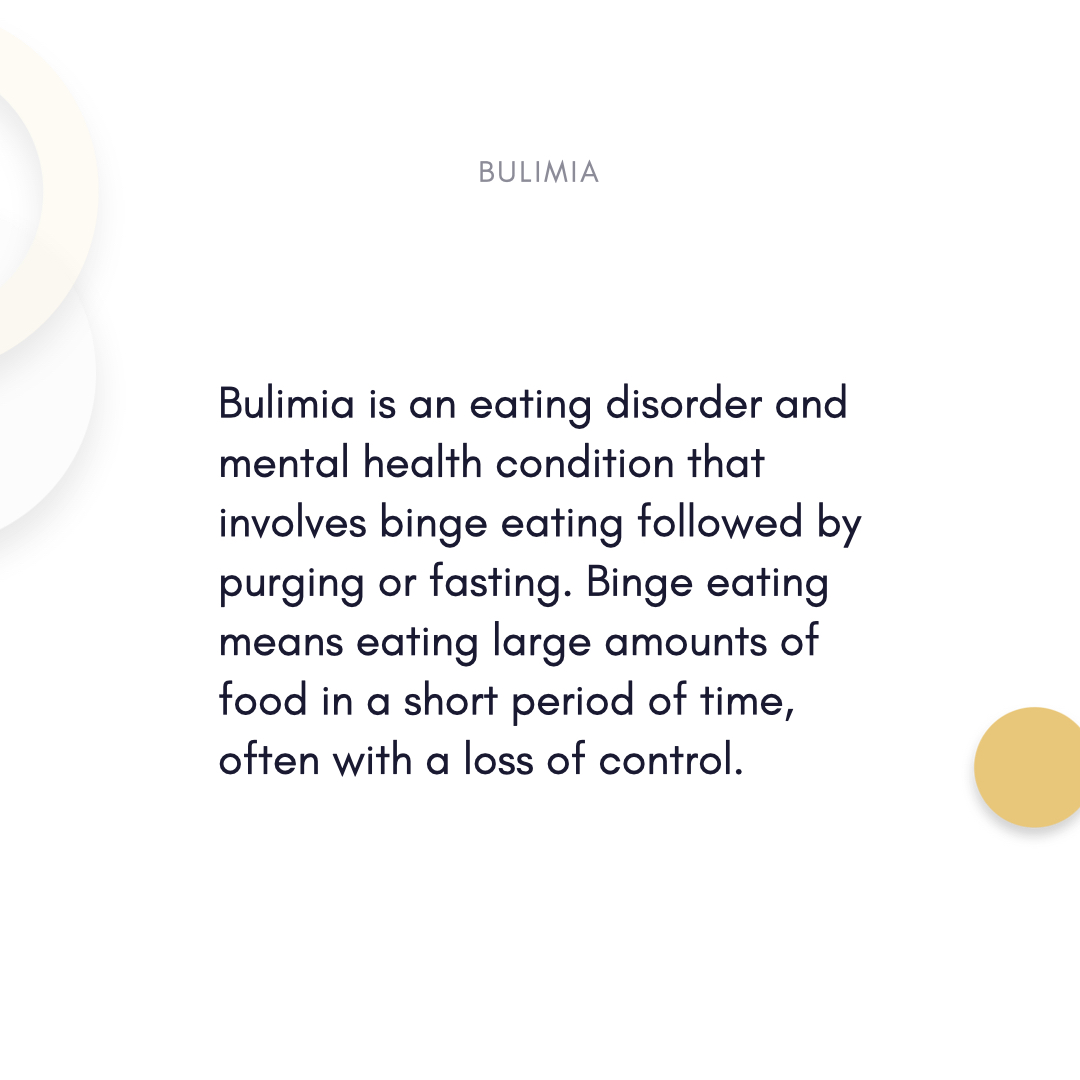Direct Primary Care (DPC) for Bulimia: Compassionate, Holistic Care for Recovery
Bulimia nervosa, a complex eating disorder marked by cycles of binge eating and purging, demands a multimodal approach to treat its psychological, emotional, and physical consequences. Direct Primary Care (DPC) offers a patient-centered model stressing accessibility, continuity, and individualized treatment, so helping to control bulimia and promote sustainable recovery.

Early Identification and Coordinating All-Inclusive Treatment
-
Reliable Relationships with Rapid Access
- Talk about guilt, body image problems, or disordered eating in a private, judgment-free setting.
- Examining for symptoms on screens: During regular visits, be alert for red flags including laxative abuse, electrolyte abnormalities, or dental erosion.
-
General Medical Surveillance
- Looking at Physical Conditions: Order labs tracking potassium, magnesium, and cardiac activity; look for arrhythmias, esophageal tears.
- Treat trauma, co-occurring anxiety, or depression working with therapists and psychiatrists.
-
Cooperative Interdisciplinary Project
- Eating disorders experts coordinate referrals for evidence-based therapies including dialectical behavior therapy (DBT) or cognitive-behavioral therapy (CBT).
- By means of dietitian collaborations, develop tailored meal plans to restore good eating habits and stop cycles of binge-purge.
DPC: Individualized Bulimia Management
-
Individualized Therapies Plans
- Medical stabilization with IV fluids or medications addresses GERD, gastroparesis, or electrolyte abnormalities.
- Prescribe SSRIs (e.g., fluoxetine) in line with clinical guidelines to stabilize mood and reduce binge-purge impulses.
-
Psychological and Behavioral Support Strategies
- Cognitive Behavior Therapy: Guide coping strategies to interrupt destructive patterns and reinterpret negative self-talk.
- Mindfulness: Techniques of Practice Incorporate yoga or meditation to assist in body awareness and stress control.
-
Extended Rehabilitation & Prevention
- Track weight, vital signs, and relapse triggers as you change your therapy plan.
- Lead loved ones toward recognizing triggers and setting motivating home environments.
Why DPC Excels in Bulimia Treatment?
DPC Advantage Specifically for Bulimia Patients
- Early Action: By means of proactive treatment, prevent significant complications including cardiac issues or damage to kidneys.
- Instruct in diet, self-advocacy, and relapse avoidance.
- Simplified coordination: Connect therapists, dietitians, and professionals.
Final Thoughts
Recovering from bulimia is a very personal road calling only for empathy, knowledge, and constant support. DPC alters this path by offering easily accessible, tailored treatment lacking in many conventional approaches. Helping patients to stabilize their physical health as well as to manage emotional triggers guarantees that DPC practitioners see, hear, and empower them.






